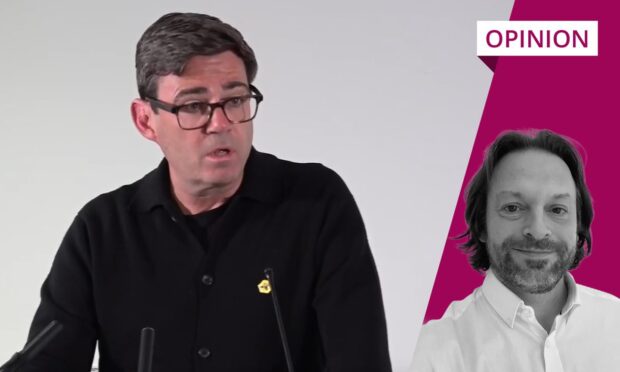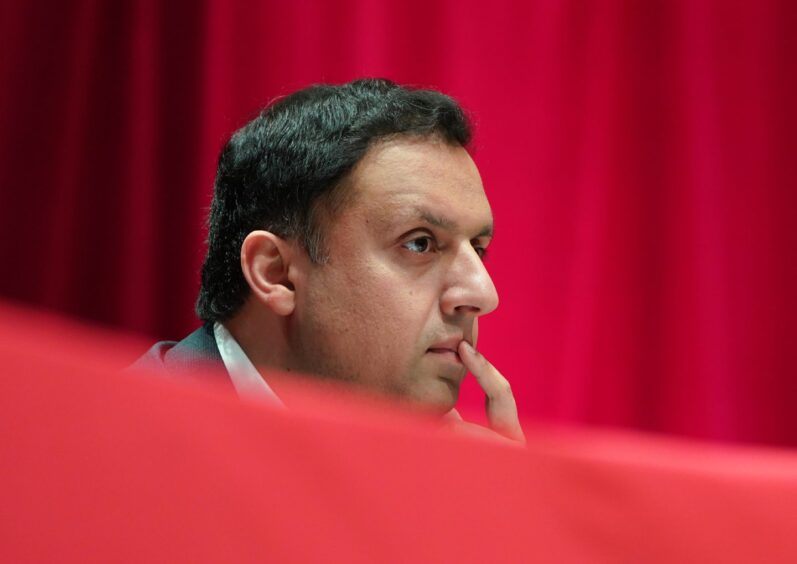Can you name your local council leader? Being the kind of intelligent and engaged person who reads the P&J, you might well be able to. But think of the people you know: could they?
I wonder how many Scots know that the mayor of Greater Manchester is Andy Burnham? Probably more than can identify whoever runs their own local authority.
Through his dynamism, charisma and political skill, Burnham has in recent years become one of the best-known and most highly-rated politicians in the UK.
That’s quite something, given his bailiwick stretches only as far as Wigan in the west and Oldham in the east, Rochdale in the north and Stockport in the south. Burnham has made himself relevant, and not just to the good folk of Lancashire.
There’s a reason that within days of the general election, Keir Starmer met with England’s regional mayors in Downing Street, including Burnham, London’s Sadiq Khan, and Tees Valley’s Conservative mayor Lord Houchen.
He knows they matter, their relationship with the national government matters, and that any hope of getting Britain back on the right track relies on them, perhaps as much as it does on him. Starmer wants to make them even more powerful.
Burnham is the stand-out performer of this directly-elected bunch. He oversees an area that takes in 10 local authorities and has a budget of £2.6bn. But more important than this is what he does with his – still somewhat limited – powers.
I’ve lost count of the number of Scottish politicians and businesspeople who have returned from a trip to Manchester raving about the city and how it’s being run.
The planning system is being reformed so key projects can be sped through.
Foreign businesses are met with the red carpet treatment, and their path to investing is made as simple as possible.
Burnham’s measured handling of the weekend’s violence at Manchester airport was exemplary. And his willingness to stand up for Manchester against Westminster has shown his electors whose side he is on.
No wonder Anas Sarwar is lifting elements of the Burnham playbook ahead of the 2026 Holyrood election.
Scotland has been a wasteland for innovative policy development for too many years.
The excitement and energy being created by England’s directly-elected mayors, by taking power from Westminster and handing it to local communities, is worth copying.
Sarwar has said he is exploring the idea of “metro mayors” for Scotland as he seeks to replace the SNP in Bute House.
Aberdeen and Aberdeenshire, Glasgow and broader Strathclyde, and Edinburgh and its environs are all being considered for the project.
“We have got to push power out of Holyrood… transport powers, economic powers, powers to create local partnerships between local authorities,” he says.
Creating figureheads for Scotland’s main population centres would drive local debate and help foster local identity.
In Aberdeen a mayor could fight for oil and gas industry
In Aberdeen, for example, a mayor could fight for the oil and gas industry, which has become a punchbag for politicians at a Scottish and UK level.
Their voice would be national, not just local. They would be elected by people on the basis of key promises, and be held to account for delivering them.
This has never mattered more. Our cities, even the economic powerhouse that is Edinburgh, have more problems than they can cope with, and few powers to tackle them.
Each faces its own distinct challenges, but, as Sarwar, points out, so centralised has Holyrood become that most decisions, on budgets, transport and more are taken in Edinburgh. This is madness.
It may be that the SNP simply hasn’t wanted to create alternative power centres across Scotland, where mayors might take a different view on policy and that party’s drive towards Scottish independence.
The Nats prefer to see Scotland as a single nation rather than a complex patchwork of identities and allegiances.
But as communities deal with demographic challenges, as city centres are confronted by the collapse of high street retail, by housing shortages, the need to move towards net zero, and financial restrictions imposed by Holyrood, it’s clearer than ever that ministers in Edinburgh do not hold all the answers.
Let local mayors decide where local tax is levied
Long-term problems cannot be left in the hands of national politicians working to short-term electoral timescales.
Humza Yousaf’s decision to freeze council tax, taken for party political purposes at the SNP conference last year and without consultation, showed a total lack of respect for local democracy.
Why not allow mayors to decide how, where and at what rate local taxation is levied?
This would allow each part of Scotland to reflect its differing circumstances and priorities, and do so in the full glare of local accountability.
There has been a drip-drip approach to devolving some small powers, such as a tourism tax, but this is not radical enough.
A one-size-fits-all approach to local governance is not just wrong-headed, it also flies in the face of international norms – elsewhere, it is commonplace for sub-national politicians to control major decisions that affect their areas, and to be directly accountable to voters for the decisions they take.
Scottish governance as it stands is old-fashioned, inflexible and positively damaging to our national prospects.
It is past time that we moved away from a central command-and-control, Central Belt-focused approach to service delivery.
The centre has a role, but making progress on education, poverty, housing and other areas requires empowered local government. Directly elected mayors are an idea whose time has come.
Chris Deerin is a leading journalist and commentator who heads independent, non-party think tank, Reform Scotland


Conversation